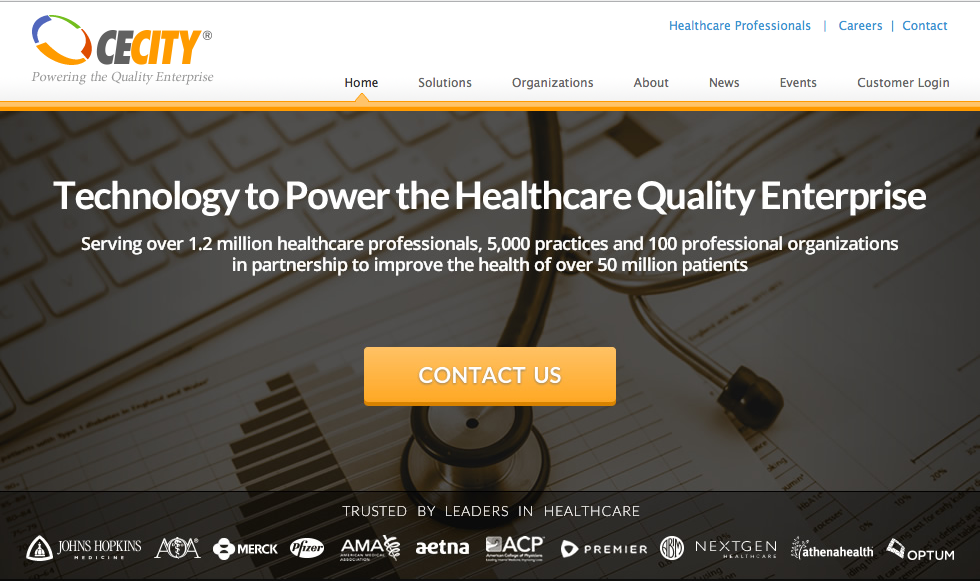Background
In 1986 after struggling for years to secure a growing stream of revenue, the American Board of Internal Medicine (ABIM), a 501(c)(3) non-profit physician testing agency originally domiciled in Iowa and now located in Philadelphia, PA, unilaterally
decided to make its once voluntary and lifelong Board certification credential time-limited. In 1986, the prospect of implementing universal healthcare (Hillarycare) loomed on the political landscape so there was a growing sentiment within the ABIM that its role should shift from determining a physician's
excellence to practice medicine to assuring a physician's practice
adequacy. By making this strategic philosophic change, the ABIM assured itself a new and virtually limitless revenue stream for years to come on a promise they knew how to determine such a metric.
There was only one problem: how does one define
physician excellence?
Excellence in medicine is not easily defined. Is physician excellence defined by patience, empathy, intellect, experience, surgical dexterity, technical skills, or some combination of these things? Or might it be judged on something else entirely? Might the qualities of excellence from a general internist be very different from those of a specialist in internal medicine?
Such important questions did not concern the leadership at the ABIM. They were convinced that not only was it possible to define methods for measuring excellence, they would blaze the trail for this endeavor. To assist them, the leadership of the ABIM co-opted the nation's brightest scholars, lured by first-class airfares, the nation's most luxurious hotels, and elegant wine selections at dinner, to create
more challenging and clever test questions for practicing physicians. None of these scholars complained. Many were honored to provide such a service; it was a great gig for those lucky enough to escape the mundane work of actually caring for patients while being wowed by the lavish creature comforts afforded to them.
On the other hand, working physicians on the front line of health care were caught completely off-guard by the unexpected unilateral "re-certification" rule change
developed in December 1986 and ultimately implemented by the ABIM in 1990. Practicing physicians, accustomed to a lifetime of testing and unaccustomed to strongman tactics and political pandering that threatened "
uncertain consequences" if they did not participate, never questioned the rationale for the rule change. For most doctors, the change was seen as just another test they needed to pass to keep working despite
never being independently shown to improve patient care or outcomes.
That is, of course, until practicing physicians slowly awakened to the gravity of the ABIM's rule change if they failed re-certification: there was a very real possibility that they might find themselves no longer "Board certified" and could lose their license to practice medicine, hospital admitting privileges, or ability to receive insurance payments. They were cleverly trapped. What choice did they have other than to participate?
Empowered by the significant additional revenues garnered by re-certification and a politically lackadaisical physician workforce, the leadership of the ABIM and the American Board of Medical Specialties (ABMS), along with the many friends they
secretly lobbied on Capitol Hill, were asked to deliver even more for their undisclosed
corporate clientele: Premier, Inc.,
CECity, Kaiser Foundation Health Plans and Hospitals, the
IPC The Hospitalist Company and their close-held relationships with the
Center for Medicare and Medicaid Services (CMS). The leadership at the ABIM decided to expand their definition of physician "excellence" to include the concept of
"medical professionalism." This way, a health care cost-saving imperative could be levied on physicians, too.
But
medical professionalism, like medical
excellence, was not easily defined. Like pornography, the leadership at the ABIM just knew it when they saw it.
Never deterred, the ABIM convened a "writing group" funded by $59,618,428 in assets the ABIM had secretly
funneled from unsuspecting ABIM diplomats' board certification and re-certification fees from 1989 to June 30, 1999 to the secret "American Board of Internal Medicine Foundation." (
Author's note: In my opinion, the amount taken from practicing physicians may have been considerably more since the ABIM paid large fees to a high-risk investment firm, 1838 Investment Advisors, LLC that lost 74% of its value before it was quietly shut down. Only after an IRS name change was the undisclosed "ABIM Foundation" finally revealed to the public and practicing physicians in 1999. I believe the origination date and domicile of the Foundation was repeatedly misrepresented to the IRS from fiscal year 2009 to as late as the 2013 IRS Form 990 to obscure its origin. To the best of my knowledge and belief after piecing together available tax forms, the leadership and board of the ABIM authorized $80,278,428 to be taken from diplomats' testing fees to fund the ABIM Foundation in the form of contributions and grants from 1989 through 2007.)
After several years of meetings with members of sympathetic U.S. and European professional societies and leadership from the Robert Wood Johnson Foundation, the writing group from the ABIM Foundation achieved their goal. They published their missive entitled "Medical Professionalism in the New Millennium" in 2002 as a non-peer reviewed white paper in the
Annals of Internal Medicine and
Lancet with the help of sympathetic editors. Not surprisingly, many of the creators of this document have since left medicine to
join the lucrative ranks of the insurance and retail pharmaceutical industry like Wellpoint and CVS.
Thanks to their growing avarice and their
undisclosed political and health care policy activities, none of the leadership or board members of the ABIM found fault with the
purchase of a $2.3 million condominium complete with a chauffeur-driven Mercedes S class town car in December 2007.
According to Richard Baron, MD, such an "investment" was the norm for tax-exempt non-profit 501(c)(3) corporations. (The condominium expenses
totaled $850,340 from December 2007 through June 30, 2013 (FY 2008: $42,522, FY 2009: $164,460, FY 2010: 161,957, FY 2011: $165,982, FY 2012: $161,980, FY 2013: $153,439)).
In the email I received from him regarding this discrepency, Dr. Baron claimed that many of these "condo expenses" included the depreciation expense for the condominium, yet depreciation for the condominium was never claimed on any ABIM Foundation IRS Form 990 tax form until this fact was disclosed on these pages.
As the requirements to participate in Maintenance of Certification (MOC) mandated by the American Board of Medical Specialties (ABMS) grew, many physicians found the requirements little more than onerous busy-work exercises that
distracted from patient care. Many practicing physicians elected to stall or not participate. For these reasons, the pressure on the ABIM to market the ABMS MOC recertification program and to protect their monopoly on the program increased. Many specialty societies, hungry for cash as physician participation at national scientific sessions waned, were increasingly happy to
help the ABIM market MOC because of the revenue it generated for them.
ABIM's Director of Investigations
In 2008, it appears the ABIM hired a "Director of Investigations" to investigate physicians or individuals who they suspected might be stealing secrets from their proprietary certification process and disrupting their monopoly. A unique individual had surfaced that year that promised a return on their investment. He was perfect: someone with deep ties to law enforcement and surveillance techniques who had created a niche for himself in test security. He was comfortable collaborating with various law-enforcement organizations like the U.S. Postal Inspection Service and the FBI. His self-generated
LinkedIn webpage (
Author's addendum 9 June 2016 @ 20:00 PM CST: LinkedIn page has been brought down. Earlier partial copy can be viewed here or his
Infragard info page should suffice. ***
Author's Addendum: July 4, 2016: Mannes' LinkedIn page brought back up) impressive so few would question his integrity. But while this individual seemed perfectly amicable and credit-worthy on the surface, he held a more concerning past that the ABIM may have known but chose to ignore. Perhaps this is why his position and true background has never been formerly disclosed to physicians or the public. He appeared on the scene quietly at first with a
press release concerning the existence of "phony boards" in
AMA Medical News. A similar press release
remains on the ABIM website. As others reportedly tried to capitalize on the board certification money pipeline, another warning of a fraudulent board scheme was
circulated by the Connecticut Attorney General's office a short time later. In fact, according to my review of available Form 990 tax forms, this individual and the salary he receives from the ABIM has never been disclosed by the ABIM, yet he freely promotes his position at the ABIM with the
movie and
test security industries.
It was becoming abundantly clear: the ABIM meant business when it came to protecting their physician testing empire.
Teaching to the Test
With the exponential growth of information in health care, "knowing what to know" to pass a re-certification examination became more important than ever to practicing physicians. Not only were the insurance company and pharmaceutical company pre-authorizations adding to physicians' workload, certification requirements to remain employed were as well. By 2009, the demand for Board review courses that promised successful re-certification pass rates had skyrocketed. Because the stakes were so high and the content of the examination often obtuse, many physicians recognized that they could no longer just rely on their experience to pass the examination. Board review courses became a necessary pre-requisite for many to pass because hints and tips of what content to study were always provided, irrespective of which organization or individual offered them.
As the stakes for certification and re-certification grew, word spread that a doctor, Rajender K. Arora, MD was running an "Unusual Board Review" course that used content remarkably similar to study questions on the ABIM certifying examinations. They had heard he got most of his study materials from physicians that had already taken the test. Pass rates and course ratings from attendees of Arora's course were good. Many medical schools and hospitals, eager to report high board certification pass rates for their physicians to remain ACGME credentialed, recommended their residents and physicians attend this course. After all, the Arora Board Review had received ACGME accreditation.
But for the ABIM (and for their affiliated professional societies like the American College of Physicians that earn handsome returns from
board review materials) who felt their databank of re-used test questions might become compromised and less valuable, something had to be done.
The Raid
So the ABIM tapped the skills of their "Director of Investigations." According to the
original complaint of a suit filed under seal by the ABIM, an employee of the ABIM was tapped to attend (see items 43 and 48) and audiotape at least one of Arora's courses. The ABIM has
retained this audiotape in their possession (partial transcripts of the recordings made by ABIM are included
here,
here, and
here). It appears this evidence was used to help secure an
ex parte Temporary Restraining Order and Seizure and Impoundment Order issued against Rajender K. Arora, MD, Anise Kachadourian, MD, and another 50 unnamed "John Doe's" in 2009. The complaint was filed "under seal" (not disclosed to the public initially). Only three names (other than the ABIM's counsel) appear on that order that supplied the judge with the evidence the ABIM had acquired:
Christine Cassel, MD (President and CEO of the ABIM),
Rebecca Baranowski (Senior Clinical Content Manager for the ABIM), and
A. Benjamin Mannes (Director of Investigations for the ABIM). On the basis of the evidence obtained by the undisclosed ABIM employee (s), US Marshals executed a
writ to seize materials from Dr. Arora's residence including copies of computer hard drives, backup tapes, Dr. Arora's cell phone as well as 36 boxes of course materials.
But what the Director of Investigations,
A. Benjamin Mannes, (aka "Ariel Benjamin Mannes") likely failed to disclose to the judge (and still has never been fully disclosed in my own earlier personal email communications with him, other US physicians, or the public) is that Mr. Mannes carries two felony convictions. These convictions were issued Dec 13, 2005. According to District of Columbia felony conviction #006438 found on the
DC Court Cases Online search web page, Mr. Ariel Benjamin Mannes, a former DC police officer released from the DC police force in 2003 after targeting a journalist who wrote a satire on dirty DC cops, was later convicted on charges of (1) impersonating a DC police officer and (2) carrying an unregistered firearm in 2005 after working as a bouncer "
keeping the piece" (details at this link) at a local D.C. nightclub to supplement is income while working for the TSA, Railroad division. As a result of the night club incident, Mr. Mannes was released from the TSA in late 2007 just before apparently joining the ABIM. He lost his appeal of these convictions Oct 21, 2008 less than two months before he
appeared (backup pdf of the webpage
here) in the press as the "director of test security" for the ABIM.
This revelation is not a minor concern for practicing physicians and the public. Certainly
using convicted felons for security jobs is not news. But the irony that a felon would be hired to tract the elusive physician thought to be cheating as they studied for a credentialing examination is lost on few.
Many other important questions remain. Did the ABIM call the police before initiating their investigation or use Mr. Mannes, a confirmed expert at intimidation, as a "law enforcement officer" to establish probable cause for the search and seizure at Dr. Arora's residence? What policy and process does the ABIM have to assure due process of physicians accused of cheating? Why was a press release issued before due process occurred? Why is his salary and position of someone this instrumental to physician "investigations" and intimidation not disclosed on ABIM tax forms or elsewhere? How much did (and does) Mr. Mannes earn for his "services" at the ABIM? Would the 139 physicians who were either sued, sanctioned, or
vilified in the mainstream media for "cheating" without due process have had a very different outcome if Mr. Mannes' past history been brought to light? How many other of the "50 John Doe's" does the ABIM intend to sue based on Mr. Mannes' "investigation" work and how much will this cost practicing physicians? With whom did Mr. Mannes collaborate in law enforcement? Did Mr. Mannes' access to law enforcement assets allow him to track physician email addresses? What did he disclose to them and what did they disclose to him? Were the physicians struggling to remain credentialed to practice medicine after the ABIM's abrupt unilateral and highly lucrative certification rule change at fault or was the leadership and board members of the ABIM who instigated this attack on their character using a convicted felon? Who at the ABIM directed an "employee" to attend and secretly audiotape the Arora Board Review courses? Should attendees of Dr. Arora's course have been informed they were being audiotaped or did the ends justify the means? Were physicians'
Fourth Amendment Constitutional rights violated because a law enforcement officer was not used to obtain the search and seizure order on Dr. Arora's residence? Was evidence manipulated? What right to privacy are physicians entitled that study for their MOC re-certification examination? Do physicians have a right to know that attendance at a board review course could be used against them if they mention question content they heard from others?
Considering the millions of dollars involved, the myriad of conflicts of interest, and use of a felon for Board certification and re-certification "investigations," who cheated whom in 2009?
Sadly, these concerns have not disqualified Mr. Mannes and the ABIM's former prosecuting attorney from ABIM's law firm, Marc Jacob Weinstein (with whom Mannes collaborated and who helped bring the original legal complaint against Dr. Arora in 2009) from serving leadership roles (or as employees) of the test security firm,
Caveon and marketing their expertise to the
Association of Inspectors General or
test security conferences (page 19) as late as November, 2015. It is also concerning that Mr. Mannes' background allows him to serve as
Governor on the Board of Directors of Philadelphia InfraGard. (For those unfamiliar, "InfraGard is a partnership between the FBI and the private sector created after the 9/11 terrorist attacks that is an association of people from businesses, academic institutions, state and local law enforcement agencies, and other participants dedicated to sharing information and intelligence to prevent hostile acts against the U.S." Doctors should note that Philadelphia InfraGard
lists its address as the same address as the
FBI in Philadelphia.)
I believe Christine Cassel, MD, who was President and CEO of the ABIM at the time, bears much of the responsibility for the actions and direction of the organization during her tenure. The day after publishing the ABIM press release about the ABIM's actions and the appearance of a
simultaneous article in the Wall Street Journal on the matter, Dr. Cassel published a column on the KevinMD blog 10 Jun 2010 entitled "
ABIM responds to doctors sharing board certification questions." The original link to the redacted Arora emails that the ABIM claimed formed the basis of their suits against physicians has since been removed. (I retrieved the emails from the internet archive
here). In her column, Dr. Cassel explained: "through these actions we are taking, we are reassuring patients and the public that the can continue to trust the process and, and (sic) physicians can continue to trust that it is a fair and rigorous assessment of their medical knowledge and judgment." In retrospect, I believe Dr. Cassel had good reason to use strongman tactics and a convicted felon against more vulnerable physicians: to insist the income generated by physician re-certification be protected. In her 11-year history as President and CEO, to the best of my knowledge, she earned at least
$10.88 million dollars, with nearly
$9 million of that amount from fees paid diplomats of the ABIM. Dr. Cassel, who it appears was pivotal in organizing the raid on these physicians' residences for her financial and political benefit, was a member of the
President's Council of Advisors on Science and Technology (PCAST) at the time and remains there today. PCAST is an advisory group of the nation’s leading scientists and engineers who directly advise the President of the United States and the Executive Office of the President. Not surprisingly, Dr. Cassel who ironically
describes herself a "leading expert in geriatric medicine, medical ethics, and quality of care,"
does not participate in Maintenance of Certification despite being a founding member of the Institute of Medicine and the former President and CEO of the National Quality Forum that determines quality metrics for the nation's hospitals on behalf of the Center for Medicare and Medicaid Services. Given her long-standing
conflicts of interest with Kaiser Foundation Healthcare and Hospitals, is there any wonder why she was appointed as Planning Dean for the newly-announced Kaiser Permanente School of Medicine as of March 1, 2016? What message will her history of intimidation and questionable ethics send to Kaiser's future medical students?
ABIM's Ongoing Legal Actions
Currently, the ABIM is involved in another
suit they brought against Arora Board Review attendee, Jaime Salas Rushford, MD from Puerto Rico. According to the
letter sent to Dr. Salas Rushford on May 8, 2012, the ABIM was "conducting an investigation into the practices of Arora Board Review and its customers." According to the letter, the ABIM traced emails they obtained from Dr. Arora's computers and on the basis of their discovery "determined to indefinitely revoke your certification and will
notify the Medical Board in every jurisdiction in which you are licensed" without due process. Given what we now know about the practices of the ABIM and their "Director of Investigations," is there any surprise that Dr. Salas Rushford is
having difficulty obtaining documents from the ABIM for his defense and for his countersuit against them? The foot-dragging and
excuses made by the ABIM, including the possibility that Dr. Salas Rushford will make the settlement arrangement between Dr. Arora and the ABIM publicly available on his
website, suggests the ABIM cut a special deal with Dr. Arora whom they never sued. What was that arrangement? Why has this not been disclosed publicly? How many other physician email addresses obtained from the Arora Board Review course computers does the ABIM still plan to track down and sue? How many millions of dollars have been squandered by the ABIM in legal attacks upon physicians attempting to fulfill the ABIM's unilaterally mandated re-certification requirements?
Most of all: how
much more is the ABIM hiding?
It is difficult to imagine a more Kafkaesque twist to US medicine's professional regulatory system. At least six physicians were sued as a result of the ABIM's raid on Arora's residence and 134 more sanctioned, resulting in untold professional ridicule, anxiety, embarrassment, and potential loss of their ability to practice medicine. No doubt their patients suffered, too. To add insult to injury, Ms. Lynn Langdon, then the Chief Operating Officer of the ABIM and a non-physician staff member of the ABIM who
earned $681,152 in FY 2012 ($297,646 as a "bonus and incentive compensation"), sent thousands of "
letters of concern" to other physicians who attended the Arora Board Review course and reportedly keeps those letters on file. Richard Baron, MD, the current President and CEO of the ABIM, earned $61,216 as Chair of the Directors at the time of the audiotaping of the Arora Board Review course and was surely was aware of the raid as well. Like the McCarthy era, it appears we have a system of regulators that will stop at nothing to intimidate and blackball physicians to assure funding of their regulatory cartel.
It is time for the public and our professional societies to know the truth. I believe, given these facts, that the ABMS MOC program (and any iteration that it might morph into) has no place in US medicine and should be abandoned
immediately. I also believe the
Wall Street Journal that published its
earlier story in 2009 with the headline suggesting physicians "cheated" should publish a retraction and provide a follow-up investigation of the ABIM with these facts in mind to set the record straight. After all, the simultaneous release of the
Wall Street Journal story the same day the
ABIM press release was issued, coupled with the fact that physicians' names appeared in the article that did not appear in the press release, suggests the
Journal was tipped to the story by the ABIM who sought to profit from their actions. To the best of my knowledge at this time, no physician that was sued by the ABIM as a result of the Arora raid has paid a dime in penalties to the ABIM for copyright infringement for attending the Arora course. Yet how much harm was experienced by the 139 physicians who were sued or sanctioned by the ABIM on the basis of the irresponsible actions of the ABIM and their felonious "Director of Investigations?" I know of at least one physician who received the ABIM's "
letter of concern" has been unable to re-certify in any subspecialty since that letter was issued.
Moving Forward
It is time for a full investigation of the ABIM and its practices by the Department of Justice, Internal Revenue Service, or the Federal Trade Commission. Are the tactics, that have been used by the ABIM typical of a non-profit 501(c)(3) organization granted tax-exempt status? It will take time and resources to do so, but the public and practicing US physicians deserve to know the truth of all that has transpired and continues to transpire with our nation's physician regulatory system. Without such an investigation, it is hard to see how the ABIM or the ABMS will ever regain the trust of physicians or the public. Clearly, the status quo is unacceptable. If the ABIM and ABMS structure are to survive, bylaws must be changed to insist that an elected board will lead each subspecialty society in lieu of the appointed ones and membership of each organization must decouple themselves from the government and corporate interests that financially benefit the current system. A full independent financial audit as far back as 1986 as well with full disclosure of tax filing discrepancies is especially needed. Professional societies and academic journals who conspired with the ABIM and c
ontinue to support the ABMS MOC program for their financial benefit need a similar shake-up as well.
Physicians want to care for patients, we do not need unaccountable henchmen and bureaucrats hell-bent on their own power and profits to do our job. It will be up to each of us to demand that hospital systems and insurance companies no longer require ABMS specialty board "maintenance of certification" as an exclusive requirement for licensure, hospital admitting privileges, academic appointments, or insurance panel participation. If they do, it will be up to each of us to demand justice.
"It ain't what you don't know that gets you into trouble.
It's what you know for sure that just ain't so."
- Mark Twain
(borrowed shamelessly from the opening quote of "The Big Short")
-Wes
References:
Dr. Wes blog: The Maintenance of Certification Controversy 2015 - The Year in Review
Dr. Wes blog: The Business of Testing Physicians
I
mage references:
https://www.thrillist.com/culture/best-frank-underwood-quotes-house-of-cards-funny-and-witty-lines
http://houseofcardsquotes.tumblr.com/post/77137104455
http://www.scoopwhoop.com/world/hoc-quotes/






